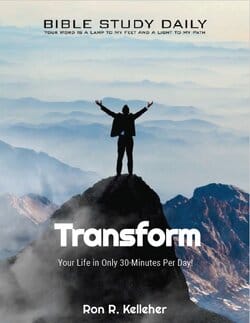What I Noticed Today (1 Kings 9-11)
1 Kings 9
God established a covenant with Solomon.
In verses 1-9, about 25 years into his reign (946 B.C.) Solomon had finished building the Lord’s Temple, his palace, and other buildings.
- The Lord appeared to Solomon a second time like He had appeared to Solomon at Gibeon.
- The Lord responded to Solomon’s prayer by putting His name on His house (temple) forever and keeping His eyes and heart there for all time.
- The Lord restated his promise to protect and bless the people if Solomon would walk with the Lord in the integrity of heart and uprightness.
- But, says the Lord, if Solomon turned away from following the Lord, the Lord promised to afflict the people, up to and including taking the land away from them.
In verses 10-14, at the end of 20 years, Solomon had completed building the Lord’s Temple and his own palace. Solomon gave Hiram, king of Tyre, 20 cities in Galilee.
- In addition to the cedar and pine wood, Hiram had given 9,000 pounds of gold (120 talents) to Solomon.
- When Hiram visited the 20 cities, he referred to them as the Land of Cabul (good for nothing)
Note: Hiram referred to Solomon as “my brother” (v. 13). Scholars believe this language is an indication of a treaty between the two rulers (Amos 1:9).
In verses 15-19, Solomon continued building. He built terraces between the hills and extended the wall around the city of Jerusalem. He also built walls around the cities of Hazor, Megiddo, and Gezer. He rebuilt Beth-horon, Baalath, Tamar, the storage cities, and the cities where the cavalry was stationed.
In verses 20-23, the people who remained in the land after the Israelites had conquered it were conscribed to forced labor (the Amorites, Hittites, Perizzites, Hivites, and Jebusites). 550 Israelites served as deputies supervising the workforce (along with 3,300 foremen 1 Kings 5:16).
In verses 24-28, Solomon’s wife, the daughter of Pharaoh, moved from the City of David (Jerusalem) to the house Solomon had built for her. Three times a year, Solomon offered sacrifices before the Lord. Solomon assembled a fleet of ships at Ezion-Geber on the Red Sea in Edom who conducted trade with Ophir
1 Kings 10
The Queen of Sheba visits Solomon.
In verses 1-13, through his foreign trade, Solomon’s wisdom became known throughout the world, and the Queen of Sheba came to visit. The queen recognized the Lord’s blessing on Solomon and his reign as a sign of the Lord’s love for Israel.
Note: Sheba is modern Yemen and is about 1,200 miles from Jerusalem.
- The queen admitted that Solomon’s wisdom and wealth were even greater than she had heard. Although the queen was a pagan, she gave credit for this to Yahweh.
- She gave Solomon 4-1/2 tons of gold (120 talents), spices, and precious stones.
- Solomon gave the queen whatever she desired, and she returned home.
In verses 14-29, Solomon had enormous wealth flowing into the country from all his foreign trade. Twenty-five tons of gold came to him every year through his trade with other nations.
- People from all over the world came bearing gifts to hear the wisdom of Solomon.
- Among other things, Solomon accumulated 1,400 chariots and 12,000 horsemen and stationed them in the chariot cities.
Note: The accumulation of horses was contrary to the admonition ins Deuteronomy 17:16 not to do so.
1 Kings 11
1 Kings 11 marks Solomon’s stark turn away from the Lord.
In verses 1-13, Solomon loved the ladies. He didn’t care where they came from or what gods they worshipped.
Note: Deuteronomy 17:17 warned kings not to accumulate wives. Deuteronomy 7:3-4 warned the Israelites not to intermarry with women who worshipped foreign gods.
- Solomon ignored both of these commands from God by accumulating 700 wives and princesses, and 300 concubines, many of whom worshipped foreign gods.
- To keep them happy, he allowed them to worship their foreign gods, and eventually, he even helped build altars to those gods.
- God called Solomon to account for turning away from Him and told him judgment would come in the form of having all of his kingdoms except for one tribe stripped away.
In verses 14-40, God raised up enemies against Solomon.
- God began to raise up adversaries against Solomon (Hadad vv. 14-22, Rezon vv. 23-25, and Jeroboam 26-39).
- Ahijah, the prophet met Jeroboam and told him the Lord would strip away ten tribes from Solomon and give them to Jeroboam if Jeroboam would keep the Lord’s commands and statutes.
- Solomon sought to kill Jeroboam, so Jeroboam fled to Shishak, king of Egypt, and stayed there until Solomon’s death.
In verses 41-43, Solomon reigned over Israel for 40 years. He died and was buried in Jerusalem and his son; Rehoboam became king.
Some thoughts for additional consideration:
- It’s interesting that Solomon began so fully alive for God and for the privilege of leading His people that all Solomon asked of God was wisdom. But once wealth and power became his, he began to fall away. He turned away from God for riches and wives. Even in the midst of God’s rebuke, we do not see Solomon repenting of his sin or taking any action to restore his relationship with the Lord.
- God’s blessings come out of God’s grace, but they can only be retained and enjoyed by obedience!
What did you notice in your study today? Feel free to visit the website and leave a question or a comment.

